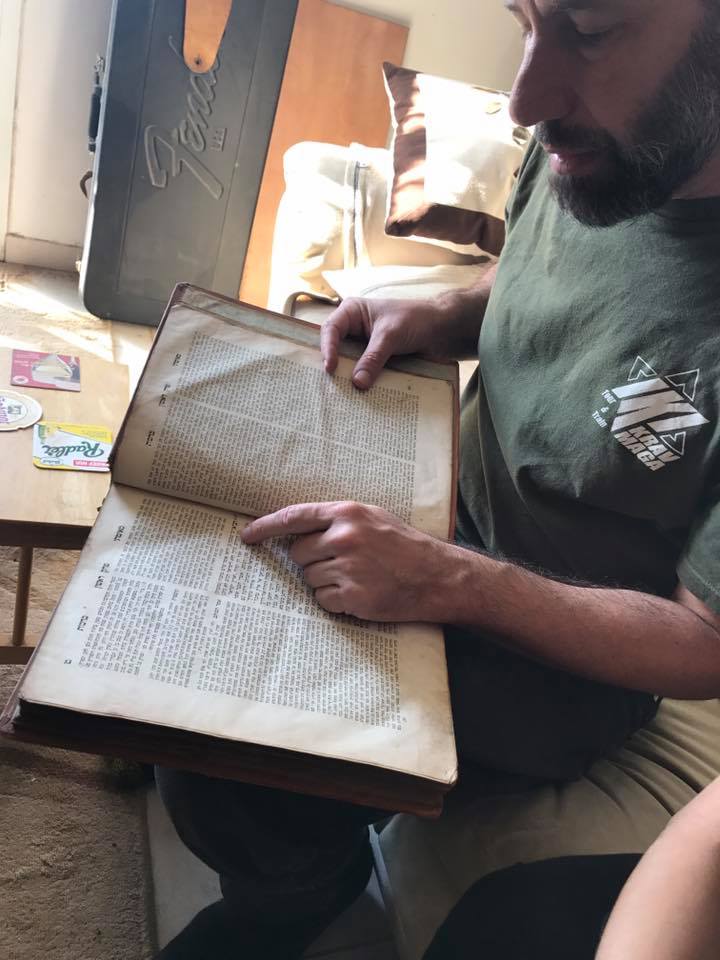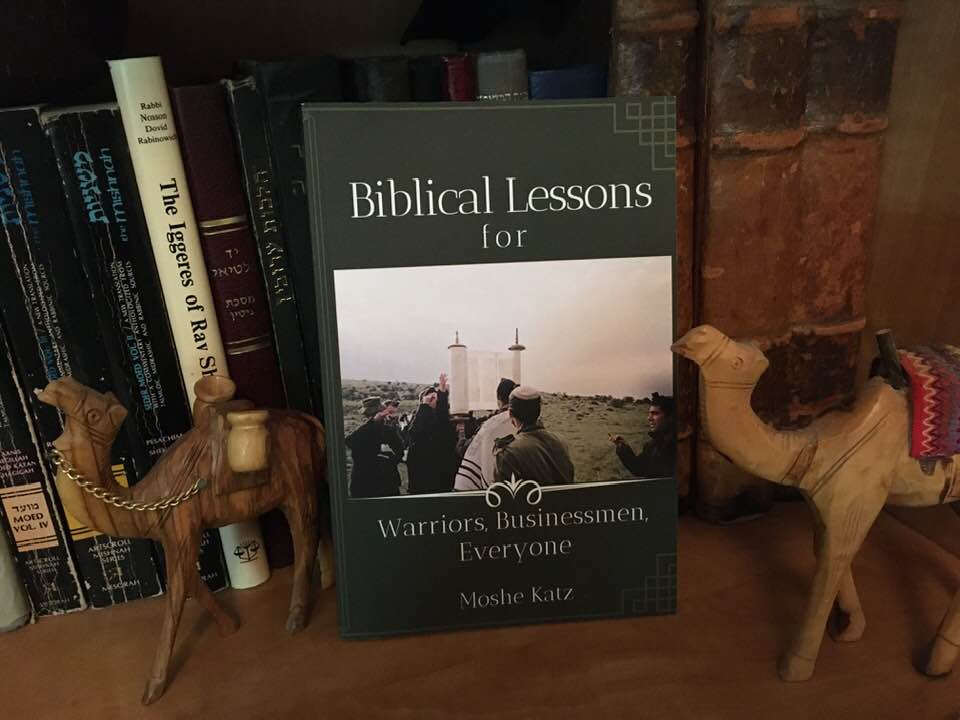- Home
- Krav Maga Blog
- Krav Instructors
- Train in Israel
- Tour Train Israel
- Krav Shop
- DVD
- Kickboxing
- IKI Near Me
- Seminars
- IKI Membership
- On-Line Training
- Krav Maga Training
- Testimonials
- History Krav Maga
- Instructors Page
- Past Blogs
- Spanish
- Italian
- Certification
- Contact
- Holland Seminar
- Vienna Seminar
- Poland Seminar
- Italy Seminar
- Belt Requirements
go forth
BY MOSHE KATZ
CEO
ISRAELI KRAV INTERNATIONAL
October 12, 2021, Maaleh Adumim, Israel
וַיֹּ֤אמֶר יְהֹוָה֙ אֶל־אַבְרָ֔ם לֶךְ־לְךָ֛ מֵֽאַרְצְךָ֥ וּמִמּֽוֹלַדְתְּךָ֖ וּמִבֵּ֣ית אָבִ֑יךָ אֶל־הָאָ֖רֶץ אֲשֶׁ֥ר אַרְאֶֽךָּ:. וְאֶֽעֶשְׂךָ֙ לְג֣וֹי גָּד֔וֹל וַֽאֲבָ֣רֶכְךָ֔ וַֽאֲגַדְּלָ֖ה שְׁמֶ֑ךָ וֶֽהְיֵ֖ה בְּרָכָֽה
(בראשית, יב, א)
"And God said to Avram (who was still in Ur of the Chaldees), depart from your country, and from your birthplace, and from your fathers' house and go the land that I will show you. There I will make you a great nation, I will bless you and I will make your name great, and you shall be a blessing." (Genesis, Chapter 12, verses 1-2)
The Torah is a guidebook, a book of lessons, for all time. It is not only a book for historians, archeologists, or those interested in ancient religions. We read the words and we can imagine Abraham/Avraham, when he was still known as Avram. He is a young man, he is seeing the world for himself, he is exploring and questioning. He comes to the understanding that the world is not a haphazard series of fortunate accidents but there is a plan and a planner. He receives a message from God, and it is a harsh message, a very challenging message.
A man sits in his lonely apartment in New York City and wonders what life has to offer. There is a great deal he wants to do, but he cannot even dream. He is limited by his surroundings, he is limited by his circumstances, he is limited by his own limits. He will get up in the morning, stop off at the same coffee shop, pick up the same cup of coffee, take the same train to the same job. But he is not content. And yet, he is as much a part of his surroundings as his old couch is part of his house; neither can move.
He has grown up in this neighborhood, he knows every crack on the street, every tree, there is comfort in familiarity, but his soul is troubled, he is sinking.
And he picks up a book, an old book, the book of books...and he reads of another man...Avram/Abram lived in the greatest empire in the world, Mesopotamia, Babylon. He lived in the city of Ur, one of the earliest settled areas on earth and at the time probably the most advanced civilization on the planet. But Avram is troubled, he does not fit in anymore, his soul is troubled. And he is told to leave. But leaving is not easy.
His mission is explained in a few cryptic words...The Hebrew is Lech Lecha, two words that are spelled exactly the same (in Hebrew לֶךְ־לְךָ֛) but have different meanings, a play on words meaning go for yourself. The rabbis explain that God is saying, Abram, I know this will be difficult but you have to understand that this is what is best for you, you will have to trust me. Go for yourself, this journey is for your own benefit, there is nothing left for you here in the great city of Ur, you are stagnating, it is time for a big change. You can no longer thrive where you are now, this place is limiting you.
The language of the text...leave your country, your birthplace, your father's house;, no word is superfluous, each is teaching us something. Your environment is holding you back, it is a bad influence on you. Spiritually this environment is stifling your development and you will only achieve your greatness if you make a clean break with everything you know. I know this will be very difficult, but it must be done, if you want to move forward and achieve the great destiny that awaits you. Leave your country, leave your childhood friends of your birthplace, even leave your father's house.
Abram is told to leave everything he knows and go towards an unknown destination. The emphasis on country, homeland/birthplace, father's house, is to teach us how difficult this is. The lesson here is that no matter how difficult it is, it must be done! He is leaving the metropolis of his time, an advanced civilization, he is emptying out his bank account and leaving everything behind to go to an unknown land, an unknown future.
Abram follows the words of God, with faith, and will achieve his greatness in another land. His offspring, as promised, became a blessing to the entire word, and those that blessed the seed of Abraham have indeed prospered, as can easily be proven by a study of history. But the lesson I wish to share today is about us, not God, about our part. We as Jews believe in action, in our doing. It is us who must become the change that we want in society. We are accused of being overly ambitious, so be it. The Torah lesson is for all of us, Believer and non-Believer. Go out! Get up, get dressed, leave your house, leave the comfortable surroundings, or in the parlance of our times - Think outside the box.
To put a Krav Maga spin on it, you are lying on your couch, you are comfortable, but miserable. You want to change your life.
You live in fear, of others, of yourself. You hear about a Krav Maga seminar; perhaps I should attend? But...nah....it might be difficult, I will just stay home and watch TV and drink a beer. Perhaps I should order a pizza as well.
And I pick up my old book and read...3,800 years ago, And God spoke to Abram and said, Get out! for your own sake. Lech - Go. And the rabbis say our entire lives should be "Go", we should always be in the process of doing something, of creating something.
As my dear father would say, take a new look at an old book, read it like you never read it before, let the lessons come to you. This morning as I sat at his dining room table, where we always spent our Shabbat and holiday dinners together, sitting next to each other, suddenly this lesson came to me. Get up! Get dressed! Get out!

